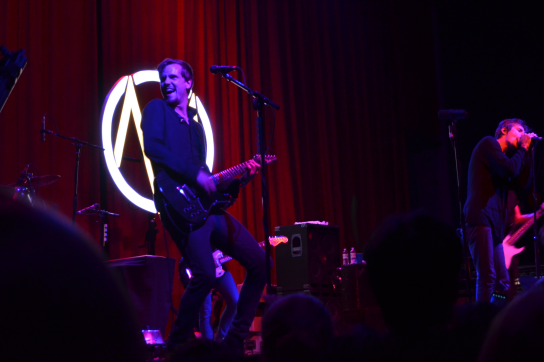By Aaron Levy (CIVL Station Manager) – Email
Print Edition: September 25, 2013

When people come to CIVL and want to learn about what we do and how we do it, they often ask whether or not we have to pay for the music we play on the radio station.
The answer is somewhat complicated, and has implications on a story that’s been making the rounds lately about fees Canadian venues now have to charge to international performers trying to entertain you and your friends.
CIVL, like all radio stations, pays annual royalty fees to representative groups that license the music produced by songwriters, composers, and performers. These fees come in the form of annual percentages off the top of our budgets.
It’s not only radio stations, though.
Any venue that wants to offer some type of musical entertainment, whether in the background, as a soundtrack to an event, or for people to rock out to on the dance floor, pays similar fees to similar (and sometimes the same) organizations. Some you may have heard of include SOCAN, ASCAP, BMI, Re:Sound, and the list goes on.
Traditionally, these types of organizations are very slow on the uptake. Radio stations, music venues, and restaurants can go for years without ever hearing from or being invoiced by one of these organizations. There’s no law that says you have to pay royalties. Instead, there are rulings passed by the government, or regulatory bodies like the Canadian Radio-television and Telecommunications Commission (CRTC), that say that X and Y organizations are legally entitled to collect such and such fees from these and those types of businesses or operations when they use music as part of their standard functions.
They also have the ability, in some cases, to charge retroactively for unpaid fees.
Ultimately, this leaves certain businesses in a precarious situation. Technically, if one of the plethora of licensing bodies approaches AfterMath about paying their dues going back to as long as they’ve been having live music or an iPod playing in the background, there’s very little AfterMath can do other than ignore the invoice.
Now, imagine if all these groups decided they wanted to collect their back dues at once?
Student, non-profit, and small-business budgets being the way they are, it could put a pretty solid dent into your overhead and operational capacity.
But, sure, people can keep dodging the music-tax man. Who’s going to stop them?
Well, our fine, and might I say fabulous, Minister of Employment, Social Development and Multiculturalism here in Canada has decided to do something about it – kind of.
A July ruling now makes it necessary for Canadian businesses not operating primarily for the purpose of live music to pay fees of $275 for every individual travelling with a performer for the purpose of playing at their spot.
So, when restaurants and bars, for instance, are interested in getting involved with culture and providing an outlet for people in their community to get exposed to live music from somewhere outside of their own backyard, they’re going to have to pay up.
You see how we’ve really solved the problem of the greedy restauranteurs exploiting the open borders of Canada’s coveted and highly profitable music venues, conveniently located in clusters of nearly a dozen at a time within the same 100-mile radius… well, if you can’t detect my sarcasm…
The fact is that this new ruling is a cash grab.
Somewhere, someone realized that Canadians are paying to see music that doesn’t necessarily come from Canada, and that there should be a tax on that.
Kudos to the accountant who put that together.
So, maybe for Jay-Z and JT, Foster the People and Robin Thicke, this won’t make a big difference.
But for bands like Foals, The National, and Vampire Weekend, who either exist with the help of smaller record labels or less sponsorship than your average major label tour, it might be a lot more difficult to see your favorite artists on Canadian soil.
International touring fees have always been a concern for musicians in North America, trying to cross-pollinate between the States and the North like Johnny Appleseed dropping his saplings into the soil.
Does the Canadian government want to put a wrench in these artisans’ ability to proliferate their craft?
No, likely not – they just want them to pay dues where they see that dues are due.
Hey, international artists, you come make money off our concert-going public – let’s see you pay for that right.
I suppose it’s just part of a larger financial shift in Canada, where we are showing that we’d rather be protectionist than diplomatic.
The sad thing is that Canada has made a name for itself internationally as being a place that is welcoming and enjoyable for artists to visit, and one in which it is also profitable to do so.
If venues have to pay more for the music they bring in, it means they’re going to have less to pay bands, or otherwise charge more money for entrance.
If venues pay less money to bands or charge more for entrance, it’s going to result in either fewer people willing to attend musical events, or fewer bands able to afford coming up here to play for you and me.
Bottom line for the top dollar.

